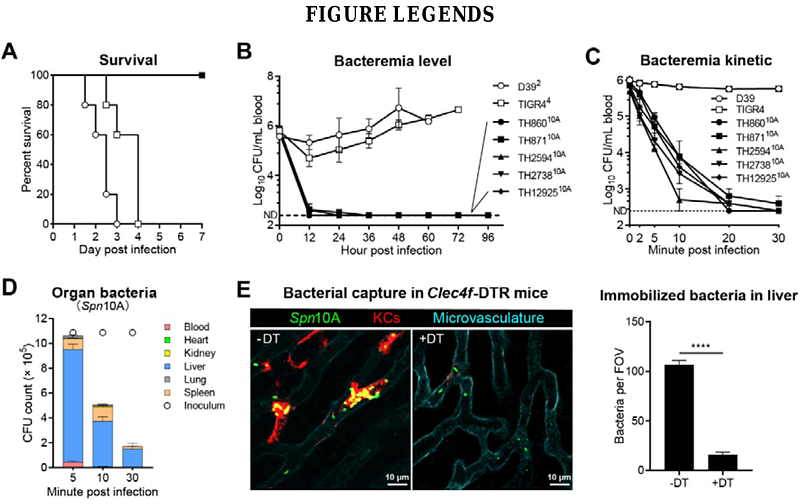Natural antibodies to polysaccharide capsules enable Kupffer cells to capture invading bacteria in the liver sinusoids

Natural antibodies to polysaccharide capsules enable Kupffer cells to capture invading bacteria in the liver sinusoids
Tian, X.; Liu, Y.; Zhu, K.; An, H.; Feng, J.; Zhang, L.; Zhang, J.-R.
AbstractThe interception of blood-borne bacteria in the liver defines the outcomes of invasive bacterial infections, but the mechanisms of this anti-bacterial immunity are largely speculative. This study shows that natural antibodies (nAbs) to capsules enable liver macrophage Kupffer cells (KCs) to rapidly capture and kill blood-borne encapsulated bacteria in mice. Affinity pulldown with serotype-10A capsular polysaccharides (CPS10A) of S. pneumoniae (Spn10A) led to the identification of CPS10A-binding nAbs in serum. The CPS10A-antibody interaction enabled KCs to capture Spn10A bacteria from the bloodstream, in part through complement receptors on KCs. The nAbs were found to recognize the {beta}1-6-linked galactose branch of CPS10A, and similar moieties of serotype-39 S. pneumoniae and serotype-K50 Klebsiella pneumoniae capsules. More importantly, the nAbs empowered KCs to capture serotype-39 S. pneumoniae and serotype-K50 K. pneumoniae in the liver. Collectively, our data have revealed a highly effective immune function of nAb against encapsulated bacteria, and provided a proof of concept for treating septic bacterial diseases with monoclonal antibodies.
